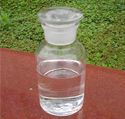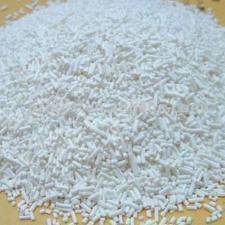Products
 News
NewsProblems about Sodium Benzoate at Home and Abroad
Problems at abroad
In Europe and Australia, benzoic acid and sodium benzoate can be appear in meat, but not recommended for children to consume. In Canada, benzoic acid and sodium benzoate can be used in the packaging of fish and meat. In India, sodium benzoate is considered widely exist in nature, close to natural additives; can be used as a food preservative in meat products. But in many countries, such as Japan, the United States, benzoic acid and sodium benzoate was not allowed to use in meat products. In Japan, has stopped production of benzoic acid and sodium benzoate, and there are some restrictions on imported food.
Problems at home
In china, about the document of meat science and processing technology, also referred to benzoic acid and sodium benzoate can be used as a preservative. In China food additive association in 2004 a communication meeting, some companies have proposed "on modifying the hygienic standards of using food additives to ban the use of flour brightener (benzoyl peroxide) advice, recommendations to the attention of the participants. Because of benzoyl peroxide in wheat flour will eventually form benzoic acid, some domestic enterprises raise doubts about formic acid and sodium benzoate are ban used in meat products, causing controversy.
So is there any need to modify "The Hygienic Standards of Using Food Additives" to expand the scope of its use? First, from the preservative mechanism of benzoic acid and sodium benzoate, we know benzoic acid preservatives in its undissociated molecules, that is to say the pH of the food has a great influence on benzoic acid type anticorrosive. The same acid, different additives has different effects, pH value of 5, the undissociated acid molecule is 1/3of sorbic acid, i.e. at the food of pH 5, the bacteriostatic effect of sorbic acid is 3 times of benzoic acid. However, at a pH of 4 or less, the effect of the difference is not large, so benzoate preservatives are generally used for soft drinks, jams, pickles and other acidic foods. The pH value of meat products is generally 5.3-6.5, even fermented meat products, such as the Italian and German Salami intestinal bowel, those foods’s pH value is about 4.7 to 5.3, and benzoic acid preservative effect is also limited. Therefore, benzoic acid has some effect in fermented meat products; it is difficult to have corrosion of benzoic acid in meat products.






